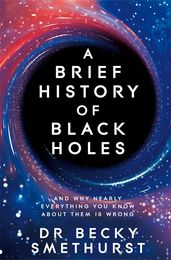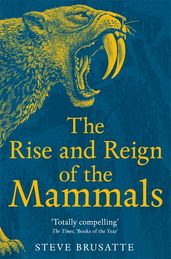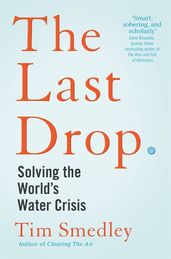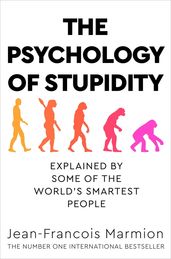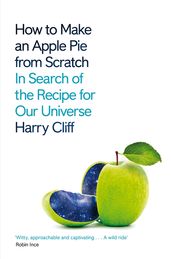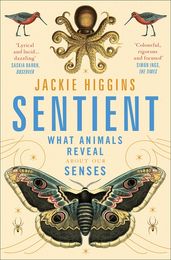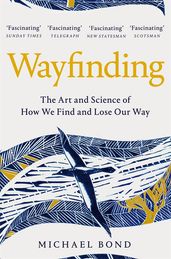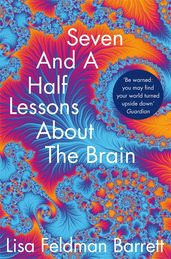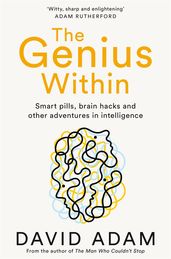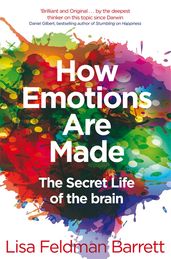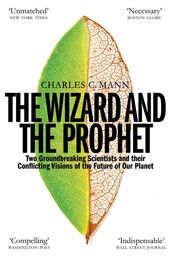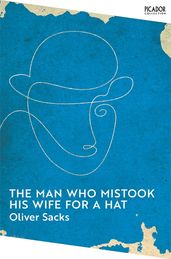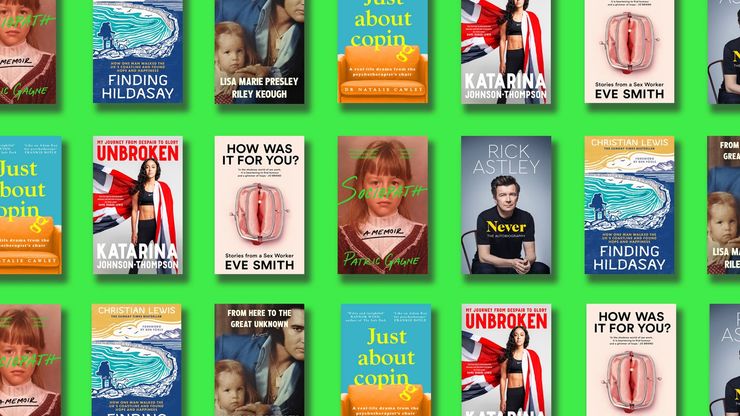22 of the best popular science books
Philip Ball, author of How Life Works, on what makes a great popular science book, plus our reading list of non-fiction books that make the cut.

What is the secret of the most successful popular science books? There isn’t one, to tell the truth – but at the same time, it’s a formulation that works pretty well. Promise (ideally in the title) to reveal something 'secret' or 'hidden' about the world – about the plants, the brain, the universe, you name it – and you have a hook to draw in readers. This is a very old tradition: one of the most popular books for the Middle Ages was called the Secret of Secrets, a mishmash of alchemy, astrology, magic and medicine allegedly written by Aristotle, and audiences couldn’t resist that allure. It might sound a far cry from today’s popular science, but in both cases the promise plays on the fact that nature is often hard to fathom and understand. A good science book will deliver Aha! moments, leaving you feeling the wiser for it.
Still, there’s no equation or formula that tells you how to do that. Sometimes the trick is to tell a human story, perhaps even with heroes and villains. Sometimes the sheer poetry of the prose is what wins the reader over. Sometimes we delight in mind-boggling ideas, or by contrast in finding the unexpected in the most ordinary or unappealing of places: dust, bacteria, disease. But at the core of the best science books are ideas: they make us think, and perhaps wonder, and we finish them looking at the world afresh.
This Is for Everyone
by Tim Berners-Lee
Discover the story behind the most significant invention in modern history. Sir Tim Berners-Lee is a different kind of visionary. Born in the same year as Bill Gates and Steve Jobs, Berners-Lee famously shared his invention, the World Wide Web, for no commercial reward. Its widespread adoption changed everything, transforming humanity into the first digital species. This memoir and manifesto provides a gripping, in-the-room account of how the World Wide Web was born and its impact on the world today. Ideal for those interested in popular science and the future of technology, the book explores the power of the internet to both fuel our worst instincts and profoundly shape our lives for the better, offering a hopeful vision for humanity’s future.
Supremacy
by Parmy Olson
In Supremacy, award-winning journalist Parmy Olson takes readers deep into the battle between two of the world’s tech giants – Microsoft and Google – as they vie for dominance in the race to develop the most powerful artificial intelligence. We follow the founders of OpenAI and DeepMind as they navigate the ethical dilemmas, financial pressures, and the looming dangers of AI technology. What begins as a quest to solve humanity's greatest challenges soon morphs into a fierce competition, where the stakes are nothing less than the future of the world as we know it, raising critical questions about the role of technology in our lives.
The Decline and Fall of the Human Empire
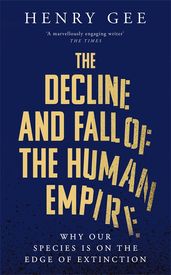
From the deep palaeolithic past to our dramatic rise from one species of human among many to the most dominant animal to ever live on Earth, Henry Gee explains how we arrived just ten thousand years from our likely extinction. Drawing on a dazzling array of the latest scientific research, Gee tells the extraordinary story of humanity with characteristic warmth and wit, and suggests how our exceptional species might avoid its tragic fate.
How Life Works
by Philip Ball
A cutting-edge new vision of biology that proposes to revise our concept of what life is – from Science Book Prize winner and former Nature editor Philip Ball. Today we can redesign and reconfigure living systems, tissues, and organisms. Some researchers believe that ultimately we will be able to regenerate limbs and organs, and perhaps even create new life forms that evolution has never imagined. Incorporating the latest research and insights, How Life Works is a sweeping journey into this new frontier of the nature of life, a realm that will reshape our understanding of life as we know it.
Lost Wonders
by Tom Lathan
We are currently living through a mass extinction – a trend that will only accelerate with the increasing rates of climate change. Tom Lathan beautifully illustrates the lost lives of species declared extinct, from giant tortoises to minuscule snails the size of a sesame seed. Lathan brings ten of them back to life through powerful stories from scientists and researchers. These intimate recollections give a unique perspective into the species we have lost and the consequences we may face with the decline of the earth’s biodiversity.
Becoming Earth
by Ferris Jabr
Becoming Earth is a thought-provoking exploration of a major shift in our understanding of Earth – not just as an inanimate planet, but as a dynamic, living entity. Jabr masterfully illustrates how life has not only adapted to its surroundings but has also dramatically shaped them. Over billions of years, life transformed Earth into a thriving cosmic oasis, influencing the atmosphere, oceans, and soil. With clear explanations, Jabr reveals how Earth became the world we know, how it is changing, and the critical role we play in determining its future.
Space Oddities
by Harry Cliff
In Space Oddities, physicist Harry Cliff takes readers on a tour of a baffling universe, discovering odd phenomena that challenge established cosmic theories. Unexplained particle energies are appearing under Antarctic ice, unidentifiable forces are meddling with matter's building blocks, and stars are inexplicably speeding away. Cliff delves into these mind-bending puzzles, meeting scientists seeking answers and questioning if these are natural anomalies or signs of hidden worlds. Through wonder, clarity, and humour, Cliff paves a path to investigate evolving physics and cosmology.
A Brief History of Black Holes
by Dr Becky Smethurst
In her enlightening book, Dr. Becky Smethurst explores the enigmatic phenomenon of black holes, which we orbit along with the Sun in the Milky Way center. From early cosmic observations and massive star collapse, to the famous black hole photographs and her research findings, Dr. Smethurst unravels mysteries. She explains why black holes aren't truly 'black', the dire consequence of 'spaghettification', their resemblance to sofa cushions rather than hoovers, and the future direction within the event horizon. The book reveals secrets of the universe, hidden in black holes.
The Rise and Reign of the Mammals
by Steve Brusatte
In The Rise and Reign of the Mammals, palaeontologist Steve Brusatte weaves together the history and evolution of our mammal forebears with stories of the scientists whose fieldwork and discoveries underlie our knowledge, both of iconic mammals like the mammoths and sabre-toothed tigers of which we have all heard, and of fascinating species that few of us are aware of. For what we see today is but a very limited range of the mammals that have existed; in this fascinating and ground-breaking book, Steve Brusatte tells their – and our – story.
The Last Drop
by Tim Smedley
Water scarcity is the next big climate crisis. Water stress – not just scarcity, but also water-quality issues caused by pollution – is already driving the first waves of climate refugees. And yet in recent years some key countries have been quietly and very successfully addressing the problem. How are Singapore and Israel, for example – both severely water-stressed countries – not in the same predicament as Chennai or California? Award-winning environmental journalist Tim Smedley explores how we can mend the water table that our survival depends upon, offering a fascinating, universally relevant account of how we've got here and suggesting practical ways to address the crisis, before it’s too late.
Wise Animals
by Tom Chatfield
Wise Animals delves into our historical relationship with technology, charting its evolution from rudimentary tool usage and fire mastery to the birth of the computer, internet, and AI. It argues that just like our ancestors, modern children learn and develop alongside their era's technology, signifying our individual and species-wide co-evolution with technology. Rather than viewing technology as a threat, it presents the humanist perspective that we're neither technology's masters nor victims, but it's an integral part of our identity, intertwined with our future.
The Psychology of Stupidity
by Jean-Francois Marmion
Edited by Jean-François Marmion, this dissection of stupidity is brought to you by some of the brightest brains around, including a Nobel Prize winner. The Psychology of Stupidity explains how lazy thinking leads to bad decisions, why even smart people can believe nonsense, how media manipulation makes us all dumber, and the pitfalls of trying to debate with a fool.
Psychedelic Apes
by Alex Boese
Psychedelic Apes is a deep dive into a black hole. What if we are all living inside one and we just don't realise? What if we are the extraterrestrials? What if the dinosaurs were wiped out in a nuclear war? Bestselling writer Alex Boese looks at the strange subculture of wacky scientific ideas, and shows how some of them may be closer to reality than we think . . .
How to Make an Apple Pie from Scratch
by Harry Cliff
‘If you wish to make an apple pie from scratch, you must first invent the universe.’ - Carl Sagan. Inspired by Sagan’s famous line, Harry Cliff ventures out in search of the ultimate apple pie recipe, tracing the ingredients of our universe through the hearts of dying stars and back in time to a tiny fraction of a second after our universe began. If you've ever wondered what matter is really made of, or how our world began after the Big Bang, or what the very first moments of our universe looked like – then this is the book for you.
Sentient
by Jackie Higgins
Sentient assembles a menagerie of zoological creatures – from land, air, sea and all four corners of the globe – to understand what it means to be human. Through their eyes, ears, skins, tongues and noses, the furred, finned and feathered reveal how we sense and make sense of the world, as well as the untold scientific revolution stirring in the field of human perception.
Wayfinding
by Michael Bond
Bond explores why some of us are so much better at finding our way than others. He also tackles the controversial subject of sex differences in navigation, and tries to understand why being lost can be such a devastating psychological experience. Discover how our brains make ‘cognitive maps’ that keep us orientated, even in places that we don’t know, and how our understanding of the world around us affects our psychology and behaviour.
Seven and a Half Lessons About the Brain
by Lisa Feldman Barrett
In seven short essays about that big grey blob between your ears, neuroscientist Lisa Feldman Barrett explores the origins and structure of the brain, as well as shelving popular myths about the alleged battle between thoughts and emotions, or between nature and nurture. Sure to intrigue casual readers and scientific veterans alike, the book is full of surprises, humour and revelations about human nature.
The Formula

Did you always think success was just down to luck? It turns out, there’s a lot more science to it than that. In The Formula, Barabasi has discovered the indisputable scientific laws that actually dictate who gets ahead and why.
The Genius Within
by David Adam
What if you have more intelligence than you realize? Dr David Adam has been testing the exciting boundaries of neuroscience, and he’s here to show you how science can actually make your brain sharper, more focused, and even more intelligent.
How Emotions Are Made
by Lisa Feldman Barrett
Our understanding of emotion hasn’t changed since Plato: we believe that emotions are hardwired into our brains, and we’re just taken along for the ride. But what if this view is wrong? And what implications does this have for society? When judges give lesser sentences for crimes of passion, when police officers fire at threatening suspects, what if they’re all relying on a dangerously outdated view of emotion?
The Wizard and the Prophet
by Charles C. Mann
Never has the future of our planet been so pressing as it is today. As global temperatures soar, the population races towards ten billion, and our food sources threaten to run out, The Wizard and the Prophet weighs up the crucial perspectives of two little-known scientists, Norman Borlaug and William Vogt. Vogt, the Prophet, believes that our prosperity can only lead to ruin – but Borlaug, the Wizard, believes science will continue to rise to the challenges we face.
The Man Who Mistook His Wife for a Hat
by Oliver Sacks
The Man Who Mistook His Wife for a Hat is the million-copy bestseller from the acclaimed neurologist, Oliver Sacks, a man the New York Times called 'the poet laureate of medicine'. In this extraordinary book, he recounts the stories of patients lost in the bizarre, apparently inescapable world of neurological disorders.
For even more pop science book recommendations, check out this episode of Book Break with guest host Simon Clarke:






